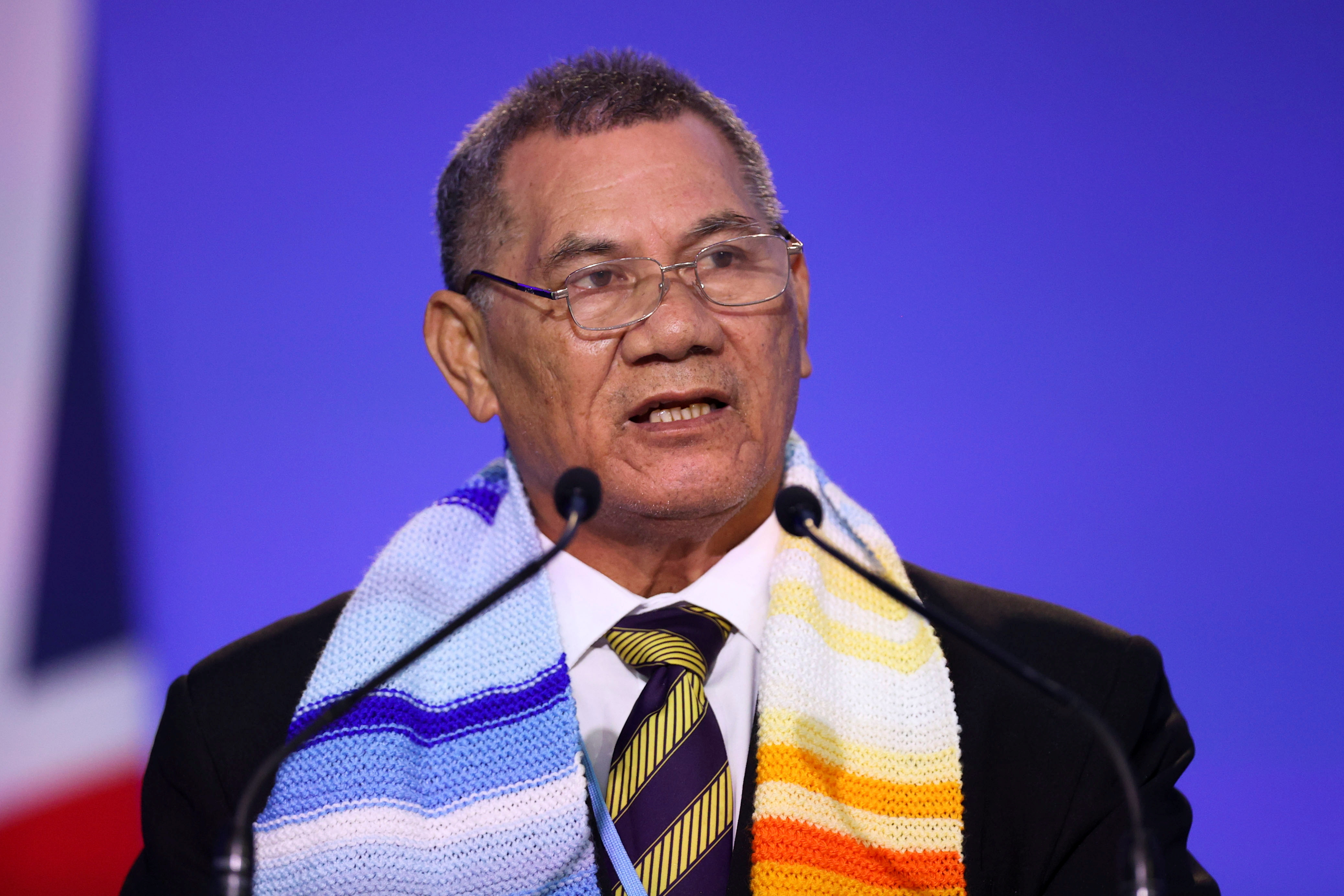By Valerie Volcovici and Riham Alkousaa
September 11, 202311:48 PM GMT+7Updated 9 days ago

Sept 11 (Reuters) – The prime ministers of two small island nations that face ongoing impacts from rising sea levels appeared at legal hearings at an international court in Germany on Monday, and seek an advisory opinion on the obligations of countries to combat climate change.
Prime Ministers Kausea Natano of Tuvalu and Gaston Browne of Antigua and Barbuda gave evidence at the International Tribunal for the Law of the Sea, which will consider whether carbon emissions absorbed by the ocean should be considered marine pollution, and what obligations nations have to protect the marine environment.
In addition to the small island states, countries including Germany, France, Saudi Arabia and Australia will speak at hearing sessions scheduled until September 25.
The tribunal will then issue an advisory opinion, which is not legally binding, but offers an authoritative statement on legal matters that could guide countries as they craft climate protection law.
“Today is indeed a historic day … As we seek to get answers to a couple of questions to determine the obligations of states parties,” Antigua’s Gaston Browne said at a news conference following the hour-long hearing.
The prime ministers, representing the Commission of Small Island States on Climate Change and International Law (COSIS), argued that countries have an obligation to protect the marine environment under the UN convention on the Law of the Sea, including from greenhouse gas emissions.
“We come here seeking urgent help, in the strong belief that international law is an essential mechanism for correcting the manifest injustice that our people are suffering as a result of climate change,” said Tuvalu’s Natano at the hearing.
Excessive carbon pollution results in damage to the oceans, including coral bleaching and acidification.
Low-lying island states like Tuvalu and Vanuatu are also at risk of becoming submerged by water by the end of the century due to slow-onset climate impacts.
“Over 30 years, we have been pleading with the large emitters of greenhouse gases to reduce emissions. But they have not heeded our calls,” Browne said, calling for immediate action to reduce global temperatures.
He said the tribunal process was a complementary pathway to the diplomatic actions the island states were taking at the United Nation summits which have yielded slow progress.
“These hearings represent a significant step toward defining the climate-related obligations of states under the UN Convention on the Law of the Sea,” said Pepe Clarke, oceans practice leader at World Wildlife Fund.
Payam Akhavan, COSIS’s counsel in the proceedings, said the case was an opening chapter. “In a previous life, I was a United Nations prosecutor at the Hague, addressing issues of crimes against humanity and genocide, which are no doubt compelling. But I’ve never worked on a case that is as important as this one,” he said at the news conference.
Small island nations have also sought legal clarity on nations’ climate obligations in other courts. Vanuatu led a campaign to ask the International Court of Justice (ICJ) to issue an advisory opinion on countries’ obligations to address climate change.
The UN General Assembly in March voted to refer the case to the ICJ, which will issue an opinion in 2024.
Reporting by Valerie Volcovici; editing by Diane Craft and Timothy Gardner

Thomson Reuters
Valerie Volcovici covers U.S. environment and energy policy from Washington, DC. She is focused on climate and environmental regulations at federal agencies and in Congress. She also covers the impact of these regulatory changes across the United States. Other areas of coverage include plastic pollution and international climate negotiations.

Thomson Reuters
Riham Alkousaa is the energy and climate change correspondent for Reuters in Germany, covering Europe’s biggest economy’s green transition and Europe’s energy crisis. Alkousaa is a Columbia University Journalism School graduate and has 10 years of experience as a journalist covering Europe’s refugee crisis and the Syrian civil war for publications such Der Spiegel Magazine, USA Today and the Washington Times. Alkousaa was on two teams that won Reuters Journalist of the year awards in 2022 for her coverage of Europe’s energy crisis and the Ukraine war. She has also won the Foreign Press Association Award in 2017 in New York and the White House Correspondent Association Scholarship that year.
